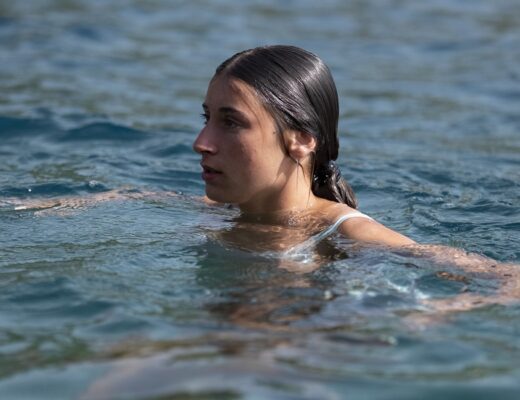Once Upon a River is frequently pretty to look at, but Rose fails to build much depth into the film’s fable-like narrative.
Once Upon a River is another entry in a developing sub-genre of post-Twain bildungsroman cinema, combining elements of fable with aw-shucks rootedness in the natural world. Its title even pretty explicitly suggests both. The tonal spectrum of such films is fairly wide: Winter’s Bone is severe, bringing to the fore the dark undercurrents that inform these narratives; Mud plays a bit like Dickens by way of Twain, imbuing its squalor with a certain muted romanticism; and then there are Benh Zeitlin’s films, which utilize fantastical elements to create a mythic tenor. Haroula Rose’s debut, adapted from a Bonnie Jo Campbell novel of the same name, falls somewhere in the middle: the film doesn’t manage to convey any distinct personality in the way of most fables, but you also don’t get to feature two grumpy old men named Smoke and Fishbone, who happen to be angels of sorts for the film’s heroine, without the intent being obvious. And according to the formula of such narratives, after early tragedy strikes, Margo (Kenadi DelaCerna, quietly terrific) sets out on her personal odyssey, ostensibly seeking her long-gone mother but, of course, actually searching for herself all along. She proceeds to encounter a litany of strangers, some helpful and some threatening, before ultimately arriving at self-reliance.
It’s a fine template to start from, but Once Upon a River succumbs to an adaptation problem wherein it hustles through its encounters and emotional shifts with speed instead of slowing down to build any depth into its various compartments. Most characters only pop up to espouse wisdom that Margo needs to hear in order to continue her journey to self-discovery, and even her Native American heritage remains mostly unexplored — she encounters a Cherokee man on her journey who tells her that colonizers “never intended for us to survive,” but the sentiment is left just hanging, and the connection that could be made between the disruption of Margo’s stable existence and the broader cultural disassociation of indigenous populations never materializes. Rose is more adept at crafting striking compositions. One memorable image is of a dead, weathered stalk bristling in the wind, the blue sky slightly out of focus in the background, while elsewhere she initiates scenes with vista shots of purple, blue, and pink dusks and twilights, often reflected on lake surfaces or distorted by a river’s moving water. But it’s unfortunately not much more than pretty wrapping on a meager package. Despite her struggle to handle the material, Rose proves to be a solid image-maker and coaxes an impressively natural turn from DelaCerna, but the tricky task of adapting Once Upon a River is a challenge for which she is simply outmatched.
Published as part of Before We Vanish | October 2020.







